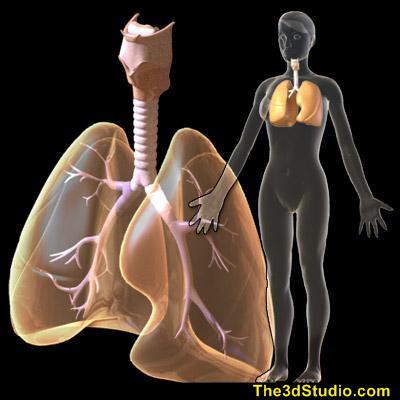Neurotransmitters dysfunction and obesity

Neurotransmitters are the naturally occurring chemicals inside your body that transmit messages between nerve cells. In the brain alone there are 183 different neurotransmitters. Two major neurotransmitters are…..
Neurotransmitters
Neurotransmitters are naturally occurring chemicals that “transmit” electrical messages between nerve cells, called “neurons” hence the name neurotransmitters. They are produced in the body by amino acids with the help of vitamins and minerals. We get these amino acids, vitamins and minerals from the food we eat. However, if we are not getting enough of these or in an imbalanced ratio a deficiency occurs and over time can lead to the development of diseases and illnesses associated with low levels of neurotransmitters.
What diseases are associated with neurotransmitter dysfunction?
According to Neuro-Research a list of diseases or illnesses are caused by or associated with neurotransmitter dysfunction. Neurotransmitter dysfunction leads to obesity and the diseases resulting from obesity, as well as other diseases not associated with obesity. Causes of neurotransmitter dysfunction There are four known primary causes of neurotransmitter dysfunction. 1: Nutritional Deficiency 2: Prescription drugs 3: Damage to the neurons of the brain 4: Excess excretion of neurotransmitters by the kidneys
Neurotransmitter dysfunction -Why is lab testing only used after starting amino acid therapy?
This is a common question. We are used to a medical community that runs tests first and then treats based on the test. However with neurotransmitters, hyper excretion is a common problem. Hyper excretion results when the kidneys are excreting excessive amounts of neurotransmitters so that the urinary values don’t match up with the systemic values. Once treatment starts with amino acids this problem doesn’t seem to occur. Therefore testing is NOT performed prior to supplementation with amino acids.
Neurotransmitter dysfunction -How many supplements are involved in treatment and what is each doing?
There are two different programs available for treatment. The first specifically treats neurotransmitter dysfunction resulting in the “conditions related to obesity and neurotransmitter deficiency” listed right. The second program treats neurotransmitter dysfunction as well as weight loss by incorporating an appetite suppressant in the formula. This will assist in controlling your appetite, however, calorie restriction is still necessary to accomplish long-term weight loss. This second program can also be used to treat symptoms associated with Parkinsonism. If only one neurotransmitter system is not functioning properly, why do I have to take supplements that affect both systems? The reason is simple, according to Neuro-Research’s extensive research, they have found that 5% of patients have only serotonin dysfunction, 5% of patients have only catecholamine dysfunction and 90% of patients are a mixture of both. Both systems must be functioning properly for the entire system to be healthy and free of neurotransmitter disease. After you have started the program we will monitor your symptoms and lab test results and adjust the supplements accordingly. So in the end you may take more of one supplement than another to achieve an appropriate “balance”. More about the Neurotransmitter Support Supplements available! Proteins, minerals, vitamins, carbohydrates, and fats are the essential nutrients that make up your body. Proteins are the essential components of muscle tissue, organs, blood, enzymes, antibodies, and neurotransmitters in the brain. Your brain needs the proper nutrients every day in order to manufacture proper levels of the neurotransmitters that regulate your mood. Neurotransmitter Effects:
- Control the appetite center of the brain.
- Stimulates Corticotrophin Releasing Factor, Adrenocorticotropic Hormone, & Cortisol.
- Regulate male and female sex hormone.
- Regulates sleep.
- Modulate mood and thought processes.
- Controls ability to focus, concentrate, and remember things.
- The Mind Body Connection.
- The chemistry of our bodies can alter, and be altered by our every thought and feeling. Our bodies and our minds are truly interconnected; the health of one depends on the health of the other.
There are many biochemical neurotransmitter imbalances that result in mental health symptoms such as:
- Adrenal dysfunction
- Blood sugar imbalance
- Food and Chemical allergy
- Heavy Metal Toxicity
- Hormone imbalance
- Nutritional Deficiency
- Serotonin/Dopamine/Noradrenalin imbalance
- Stimulant and drug intoxication
- Under or overactive thyroid
Neurotransmitter Imbalances Disrupted communication between the brain and the body can have serious effects to one’s health both physically and mentally. Depression, anxiety and other mood disorders are thought to be directly related to imbalances with neurotransmitters. The four major neurotransmitters that regulate mood are Serotonin, Dopamine, GABA and Norepinephrine.
Neurotransmitter dysfunction -The Inhibitory System

Neurotransmitter system dysfunction may contribute to the borderline personality disorder traits of impulsive aggression and affective instability
This is the brains braking system, it prevents the signal from continuing. The inhibitory system slows things down. Serotonin and GABA are examples of inhibitory neurotransmitters. GABA (Gamma amino butyric acid) GABA is the major inhibitory neurotransmitter in the central nervous system. It helps the neurons recover after transmission, reduces anxiety and stress. It regulates norepinephrine, adrenaline, dopamine, and serotonin; it is a significant mood modulator. Serotonin imbalance This is one of the most common contributors to mood problems. Some feel it is a virtual epidemic in the United States. Serotonin is key to our feelings of happiness and very important for our emotions because it helps defend against both anxiety and depression. You may have a shortage of serotonin if you have a sad depressed mood, anxiety, panic attacks, low energy, migraines, sleeping problems, obsession or compulsions, feel tense and irritable, crave sweets, and have a reduced interest in sex. Additionally, your hormones and Estrogen levels can affect serotonin levels and this may explain why some women have pre-menstrual and menopausal mood problems. Moreover, daily stress can greatly reduce your serotonin supplies. The Excitatory Neurotransmitter System This can be related to your car’s accelerator. It allows the signal to go. When the excitatory neurotransmitter system is in drive your system gets all raved up for action. Without a functioning inhibitory system to put on the brakes, things (like your mood) can get out of control. Among other things, the following should be in place to restore neurotransmitters in attempt to achieve weight loss. Epinephrine It’s also known as adrenaline is a neurotransmitter and hormone essential to metabolism. It regulates attention, mental focus, arousal, and cognition. It also inhibits insulin excretion and raises the amounts of fatty acids in the blood. Epinephrine is made from norepinephrine and is released from the adrenal glands. Low levels have been can result in fatigue, lack of focus, and difficulty losing weight. High levels have been linked to sleep problems, anxiety and ADHD. Dopamine It’s responsible for motivation, interest, and drive. It is associated with positive stress states such as being in love, exercising, listening to music, and sex. When we don’t have enough of it we don’t feel alive, we have difficulty initiating or completing tasks, poor concentration, no energy, and lack of motivation. Dopamine also is involved in muscle control and function. Low Dopamine levels can drive us to use drugs (self-medicate), alcohol, smoke cigarettes, gamble, and/or overeat. High dopamine has been observed in patients with poor GI function, autism, mood swings, psychosis, and children with attention disorders. Glutamate It’s the major excitatory neurotransmitter in the brain. It is required for learning and memory. Low levels can lead to tiredness and poor brain activity. Increased levels of glutamate can cause death to the neurons (nerve cells) in the brain. Dysfunction in glutamate levels are involved in many neurodegenerative diseases such as Alzheimer’s disease, Parkinson’s, Huntington’s, and Tourette’s. High levels also contribute to Depression, OCD, and Autism. Neurotransmitter Levels Neurotransmitter levels can now be determined by a simple and convenient urine test collected at home. Knowing your neurotransmitter levels can help you correct a problem today or prevent problems from occurring in the future.
Neurotransmitters dysfunction and obesity-Exposition

























